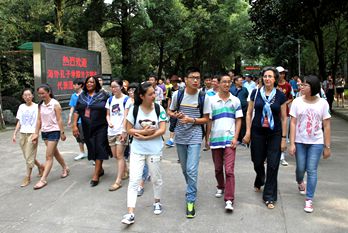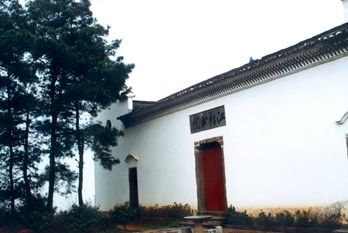Temple of Southern Confucianism

Temple of Southern Confucianism in Quzhou, Zhejiang province, is one of the only two Confucius ancestral temples in the country, with the other being located in Qufu, Shandong province. [Photo/qz.gov.cn]
Quzhou is known as the home of the descendants of Confucius. The city's ancestral temple for Confucius is one of the only two such temples in the country and is a key cultural heritage site under national protection.
The Confucian philosophy carried on by the descendants of Confucius in Quzhou is called southern Confucianism.
About 1,600 years after the death of Confucius, Kaifeng, the capital of the Song Dynasty (960-1279), was conquered by Jurchen-led Jin forces. Emperor Gaozong and remnants of the Song Dynasty retreated to South China. Kong Duanyou, the eldest grandson of Confucius in the 48th generation, also moved to South China with a pair of wooden Confucius statues and he and his wife finally settled in Quzhou. Kong Duancao, Kong Duanyou's younger brother, remained in Qufu, Shandong province. This resulted in a north-south split among descendants of Confucius.
Construction of the temple was financed by Emperor Zhao Yun of the Southern Song Dynasty (1127-1279) after receiving an appeal from the local prefecture chief; since then, it has been rebuilt three times and repaired 10 times.
In 1998, the Quzhou municipal government invested 18 million yuan ($2.55 million) to repair the temple, and in 2004, the city resumed the sacrificial ceremony marking the birthday of Confucius, which had not been held in the city for more than 50 years.
Since 2009, representatives from Confucius Institutes around the world, Chinese universities, Kong family members, and Quzhou municipal authorities have been invited to attend the ceremony, which has become an important event for Quzhou to conduct exchange and forge ties with friends from all over the world.

 City brand logo - fist-and-palm salute
City brand logo - fist-and-palm salute Confucianism on campus
Confucianism on campus The culture of the academy
The culture of the academy